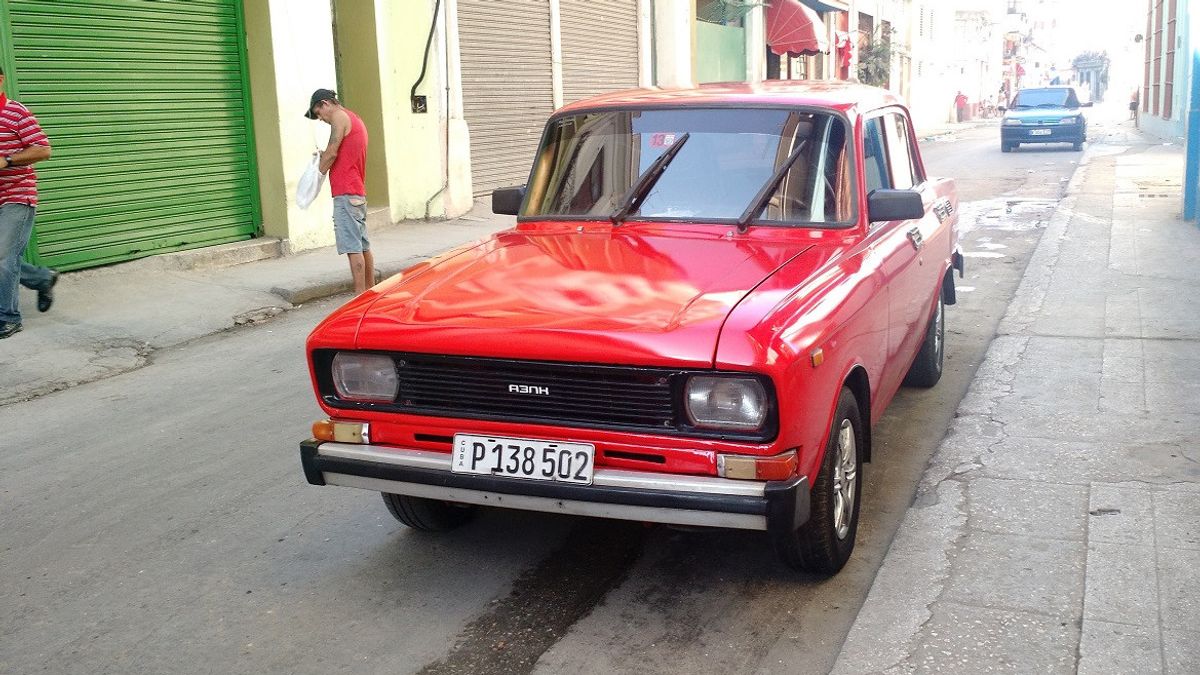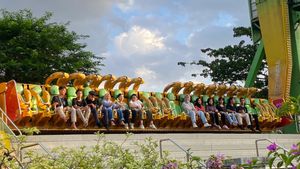JAKARTA - The mayor of Moscow has announced that it will restart production of a Soviet-era car, the Moskvich, using a factory abandoned by Renault, after the French manufacturer announced it was leaving Russia over the war with Ukraine.
Little known outside the former Soviet Union and its satellite countries, Moskvich was founded around 1930 and operated until 1991. Like many car brands from Communist bloc countries, Moskvich struggled with quality issues.
For example the Moskovich 408 of the 1960s, which had a 50 horsepower engine, was even cited by Soviet officials as having multiple defects, according to the book 'Cars for Comrades' by Lewis Siegelbaum. The author describes it, simply put, as a "terrible car".
Despite these persistent problems, the Soviet government entered into an agreement with French automaker Renault, to modernize the plant and increase production to 200,000 cars by 1975, according to the book.
Production ended when the Soviet Union disbanded and Western automakers, such as Renault, moved. Part of the former Moskvich factory reopened in 2005 as a joint venture between Renault and Moscow City.
Renault also has a controlling stake in Avtovaz, the parent company of popular Russian car brand Lada. In a statement this week, Renault said its controlling stake was sold to the Russian government, while its controlling stake in the Moscow factory, where Renault vehicles are made, was sold to Moscow. Renault opens the possibility of returning to the Russian market later.

"Foreign owners have decided to close the Renault Moscow factory. It is their right, however, we cannot allow a few thousand strong workforce to become unemployed," Moscow Mayor Sergei Sobyanin, wrote in a blog post, translated by CNN Business, as quoted May 22.
"Therefore, I have made the decision to record the factory as a city asset and continue production of passenger cars under the historic Moskvich brand."
"In 2022, we are turning a new page in the history of Moskvich," added Sobyanin.
The company will endeavor to have all current factory employees work there, the mayor wrote. The factory will also try to procure most auto parts from Russian companies.
The factory will start by producing conventional gasoline-powered cars but, at some point, will switch to manufacturing electric cars, according to Sobyanin's blog post.
Sobyanin did not specify what vehicle model would be built under the Moskvich name at the former Renault plant in the near future.
You know, Moskvich traces its roots to what are considered to be some of the first Soviet-designed cars of the 1920s and 30s. After World War II, the company started producing cars under the name Moskvich, which means "Moscow people", or native Muscovites.
Currently, about 200,000 Moskvich cars are still registered in Russia, according to the analysis agency Autostat.
While in general, cars produced in the countries of the Soviet Union and its centrally controlled satellite countries are not known for their quality.
Some cars made in Communist bloc countries, such as the East German Trabant, found cult followings in the West. The body of the Trabant is made of a material called Duroplast which resembles plastic, but is made from a mixture of wood pulp, cotton fiber and resin.
The English, Chinese, Japanese, Arabic, and French versions are automatically generated by the AI. So there may still be inaccuracies in translating, please always see Indonesian as our main language. (system supported by DigitalSiber.id)













